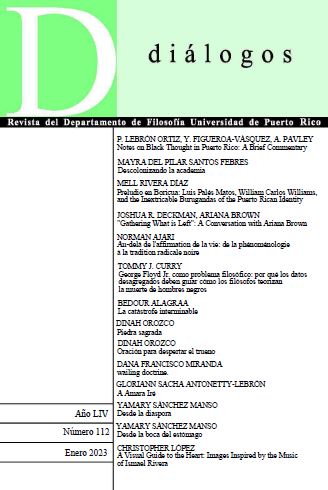Résumé
Unconvinced by the idea that posits U.S. and Latin American race relations as divorced entities, this essay tracks the discourse of mestizaje in its hemispheric development. It does so by focusing on William Carlos Williams’s translation of Luis Palés Matos’ “Preludio en Boricua” in 1942. By framing this translation within its historical conjuncture, engaging with the criticism that surrounds it, and reading it alongside other texts by both authors, this essay connects this poem and its translation to the broader discourse of mestizaje that was promoted by the Partido Popular Democrático in their construction of a consensual Puerto Rican identity. By reading this context contrapuntally with Williams’ situation, I am able to catch another aspect of this Boricua identity in its interaction with an American identity. Williams’ translation serves as a place to explore how consensual both identities actually are, as they intersect over this fundamental anti-blackness. In both cases, the construction of these identities enacts an extractive, parasitic relationship to blackness: black people serve as a foil, props to be incorporated into the nation in order to serve as the ground of identity.

Ce travail est disponible sous licence Creative Commons Attribution - Pas d’Utilisation Commerciale 4.0 International.

